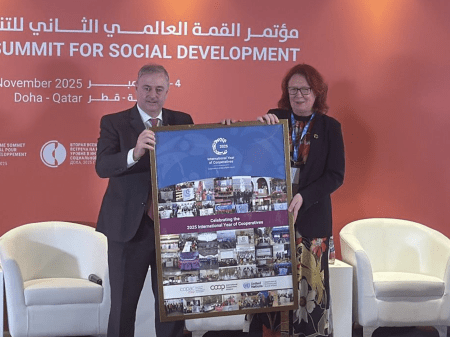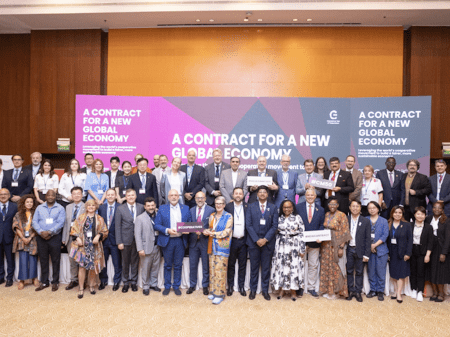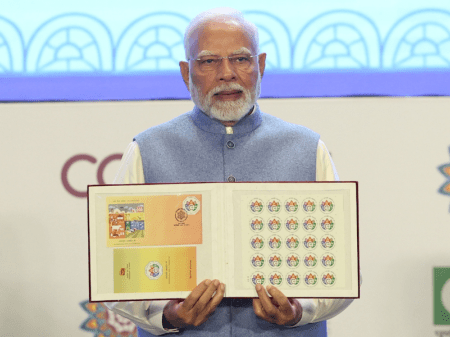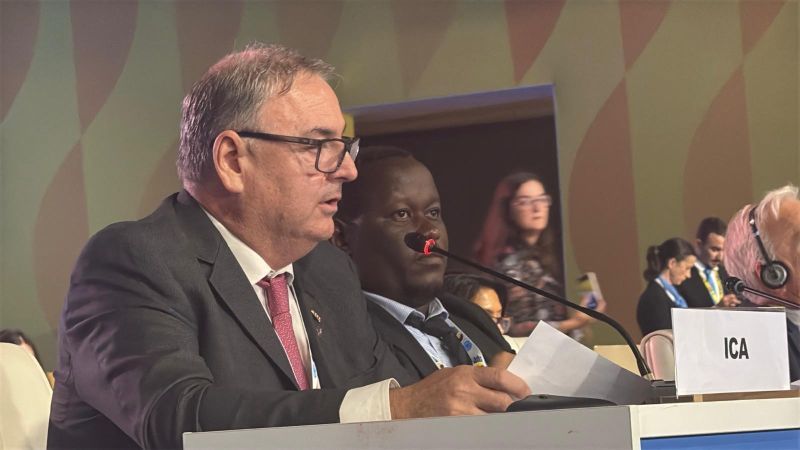
The high level round table on "Strengthening the three pillars of social development: poverty eradication, full and productive employment and decent work for all, and social inclusion" chaired by the President of Montenegro and Kyrgyzstan was held on 4th November during the UN Second World Summit for Social Development in Doha, Qatar. As an ECOSOC accredited organisation, the International Cooperative Alliance (ICA) had the opportunity to address the more than 40 Heads of State and Government, 170 ministerial-level representatives, heads of international organizations, youth and civil society with a total of 14,000 delegates from around the globe attending the Summit.
The ICA President, Ariel Guarco concluded the high level round table raising the voice of the one billion cooperators around the world reminding 2025 is declared by the United Nations as the International Year of Cooperatives and how this allows the movement to share bold perspectives on Social Development and to think together about a Sustainable Future.
Read the full address by ICA President:
I would like to bring greetings from more than one billion cooperators around the world, represented by the International Cooperative Alliance. This year, which is coming to an end and was declared by the United Nations as the International Year of Cooperatives, under the slogan “Cooperatives Build a Better World,” allows us to share our perspective on Social Development and to think together about a Sustainable Future.
First of all, when we talk about eradicating poverty, we are talking about a monumental task. More than one billion brothers and sisters live in this condition, which not only means having fewer resources than they need to buy food and other goods, but also, for many of them, surviving in an extremely precarious environment that directly impacts their health and life expectancy.
In many cases, this precarious housing situation is interconnected with violence, forced displacement, and greater exposure to natural disasters.
It is painful to say it, but poverty also leads to death.
Reversing this situation does not depend solely on our ability to help those people; it depends on accurately identifying what caused – and continues to cause – this scourge.
It will be of no use to continue discussing, in our case, the role of cooperatives in promoting inclusion if the dominant paradigm in the global economy continues to generate ever more excluded people.
That said, we agree that decent work is the best vehicle to restore the social and productive fabric that has been broken in so many places around our planet.
However, only a productive economy – rooted in local communities, based on principles and values, and oriented toward the common good – can guarantee these results.
Cooperatives carry these characteristics in their DNA. Far from being companies that occasionally practice social responsibility, they are social responsibility made into a business.
Indeed, we are not – and do not wish to be – simply ambulances that pick up the wounded from other systems.
The greatest virtue of the cooperative model is not just its ability to include those who have been marginalised, but its guarantee of stopping their marginalisation in the first place.
We firmly believe in a new global economy that allows each community to develop autonomously and democratically, cooperating with one another and with other communities, as the definitive path toward a just, sustainable, and peaceful world.
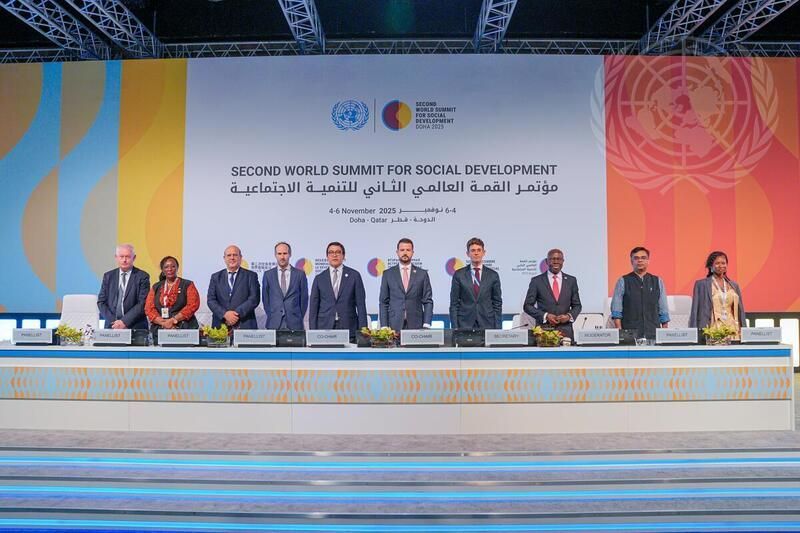
In the morning, the 2025 International Year of Cooperatives (IYC2025) was officially closed during the programme of the World Summit for Social Development (WSSD) – where Member States adopted a political declaration that included a recognition of cooperatives as leaders of the social and solidarity economy. This includes their direct contributions to SDG8 (Decent Work) and SDG1 (Zero Poverty) – the two core pillars of the Summit. The declaration builds on the UN Secretary-General’s earlier 2025 Report on Cooperatives in Social Development, which called for stronger policies to support cooperative growth.
Secretary-General António Guterres is in Doha to attend the Second World Summit for Social Development. Building on the 10 Commitments of the landmark 1995 World Summit for Social Development in Copenhagen and the Copenhagen Declaration. The Second World Summit aims to accelerate action on poverty eradication, the promotion of full employment and decent work, and social inclusion, ensuring that no one is left behind in an increasingly complex and interconnected world. It further aims to address persistent gaps, reaffirm global commitment to social development, and give new momentum to the implementation of the 2030 Agenda for Sustainable Development.

